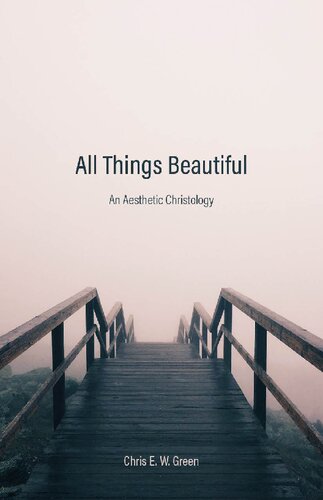

Most ebook files are in PDF format, so you can easily read them using various software such as Foxit Reader or directly on the Google Chrome browser.
Some ebook files are released by publishers in other formats such as .awz, .mobi, .epub, .fb2, etc. You may need to install specific software to read these formats on mobile/PC, such as Calibre.
Please read the tutorial at this link: https://ebookbell.com/faq
We offer FREE conversion to the popular formats you request; however, this may take some time. Therefore, right after payment, please email us, and we will try to provide the service as quickly as possible.
For some exceptional file formats or broken links (if any), please refrain from opening any disputes. Instead, email us first, and we will try to assist within a maximum of 6 hours.
EbookBell Team

4.4
12 reviewsGod calls humans to be creative. The human drive to represent transcendent truths witnesses to the fact that we are destined to be transfigured and to transfigure the world. It is worth asking, then, what truthful representations, whether in art, spirituality, or theology, teach us about the one who is our truth, the one who made us and the one in whose image we are made.
All Things Beautiful: An Aesthetic Christology is an experimental and constructive aesthetic Christology sourced by close readings of a wide array of artistic works, canonical and popular―including poems, films, essays, novels, plays, short stories, sculptures, icons, and paintings―as well as art criticism and passages from the Christian Scriptures. From first to last, these readings engage in conversation with the deep, broad wisdom of the Christian theological tradition. The liturgical calendar guides the themes of the book, beginning with Advent and Christmas; carrying through Epiphany, Ash Wednesday, Lent, Good Friday, Easter, and Ascension; and ending with Pentecost and Ordinary Time.
Chris Green brings together these readings to create a mosaic-like impression of Jesus as the one through whom God graces and gives nature to all things, his life and death redeeming the whole creation, including human creativity and artistic endeavor, and transfiguring it into the full, free flourishing that God has purposed. This vision of Christ holds promise for artists and theologians, as well as preachers and teachers, revealing how our compulsions to create―and the meanings with which we endow our creations―become a site of the Spirit’s presence, opening us to the goodness and wildness of God.